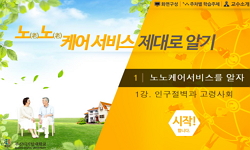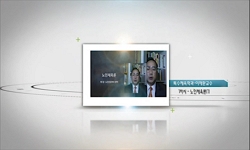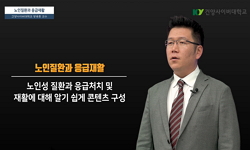The purpose of this study was to evaluate the adequacy of protein intake, protein source, and distribution of protein intake in daily meals as well as investigate the association of protein intake with socioeconomic status in the Korean elderly popula...
http://chineseinput.net/에서 pinyin(병음)방식으로 중국어를 변환할 수 있습니다.
변환된 중국어를 복사하여 사용하시면 됩니다.
- 中文 을 입력하시려면 zhongwen을 입력하시고 space를누르시면됩니다.
- 北京 을 입력하시려면 beijing을 입력하시고 space를 누르시면 됩니다.

노인의 단백질 섭취 부족과 관련된 사회경제적 요인 분석 : 국민건강영양조사 제 7기 (2016-2018) 자료를 이용하여 = Socio-Economic Factors are Associated with Risk of Inadequate Protein Intake among Korean Elderly: Based on the Seventh Korean National Health and Nutrition Examination Survey (KNHANES Ⅶ), 2016-2018
한글로보기https://www.riss.kr/link?id=A106885577
- 저자
- 발행기관
- 학술지명
- 권호사항
-
발행연도
2020
-
작성언어
Korean
- 주제어
-
등재정보
KCI등재
-
자료형태
학술저널
- 발행기관 URL
-
수록면
215-228(14쪽)
-
KCI 피인용횟수
0
- 제공처
-
0
상세조회 -
0
다운로드
부가정보
다국어 초록 (Multilingual Abstract)
The purpose of this study was to evaluate the adequacy of protein intake, protein source, and distribution of protein intake in daily meals as well as investigate the association of protein intake with socioeconomic status in the Korean elderly population. The study consisted of a total of 3,998 subjects (1,738 men and 2,260 women) aged 65 years and older who participated in the Seventh Korean National Health and Nutrition Examination Surveys (KNHANES, 2016-2018). Protein intake data were assessed using the 1-day 24-hour recall method. Factors that could affect protein intake of the elderly included age, living status, province, education level, family income, and employment. The percentage of people who consumed less protein than the estimated average requirement (EAR) for Koreans was 27.2% of men and 44.1% of women. The amount of protein consumed as a vegetable source (men: 35.1%, women: 21.2%) was higher than that for animal protein (men: 64.9%, women: 78.8%), whereas those who lacked protein intake had a lower percentage of animal rotein intake than those who were sufficient (p<0.0001). Socioeconomic factors affecting risk of lack of protein intake among men and women were age, economic level, and education level. Among women, residential areas, living alone, and employment were also affected. In summary, the elderly population in Korea show insufficient protein intake in terms of both quantity and quality, and this was affected by socioeconomic status.
참고문헌 (Reference)
1 한규상, "한국 노인의 식습관 및 영양섭취 실태 평가: 국민건강영양조사 2013∼2015 데이터를 이용하여" 동아시아식생활학회 28 (28): 258-271, 2018
2 김현희, "지역사회 거주 남녀 노인의 근감소증 관련요인" 한국노인간호학회 16 (16): 170-179, 2014
3 김화영, "일부지역 저소득층 독거노인의 영양소 섭취, 영양위험도 및 생화학 지표에 관한 조사연구" 대한지역사회영양학회 10 (10): 216-223, 2005
4 한규상, "인구사회학적 요인에 따른 가정식 섭취 횟수 및 식생활 평가: 국민건강영양조사 2013~2015 데이터를 이용하여" 한국지역사회생활과학회 29 (29): 169-183, 2018
5 구슬, "성인의 외식 빈도와 관련된 식습관 및 생활습관 요인 분석" 한국식품영양과학회 42 (42): 705-712, 2013
6 배윤정, "성인 남녀에서 외식을 통한 열량 섭취 정도에 따른 영양소 및 식품군별 섭취 상태 평가 : 2013~2014 국민건강영양조사 자료를 이용하여" 한국영양학회 49 (49): 482-494, 2016
7 임경숙, "노인의 영양섭취상태에 영향을 미치는 인구사회학적 요인 분석" 한국영양학회 37 (37): 210-222, 2004
8 김미현, "노인의 대사증후군 유병에 따른 영양소 섭취 특성 - 국민건강영양조사 제5기 1차년도(2010) 자료를 이용하여 -" 한국식품영양학회 26 (26): 515-525, 2013
9 이민준, "노인복지시설 사용자 중심의 영양·식생활관리 프로그램 요구 분석" 대한지역사회영양학회 21 (21): 65-74, 2016
10 신광진, "고령자의 식품선호도 및 고령친화식품 요구도에 관한 연구 - 서울시 노인복지관 이용자 중심으로 -" 동아시아식생활학회 26 (26): 1-10, 2016
1 한규상, "한국 노인의 식습관 및 영양섭취 실태 평가: 국민건강영양조사 2013∼2015 데이터를 이용하여" 동아시아식생활학회 28 (28): 258-271, 2018
2 김현희, "지역사회 거주 남녀 노인의 근감소증 관련요인" 한국노인간호학회 16 (16): 170-179, 2014
3 김화영, "일부지역 저소득층 독거노인의 영양소 섭취, 영양위험도 및 생화학 지표에 관한 조사연구" 대한지역사회영양학회 10 (10): 216-223, 2005
4 한규상, "인구사회학적 요인에 따른 가정식 섭취 횟수 및 식생활 평가: 국민건강영양조사 2013~2015 데이터를 이용하여" 한국지역사회생활과학회 29 (29): 169-183, 2018
5 구슬, "성인의 외식 빈도와 관련된 식습관 및 생활습관 요인 분석" 한국식품영양과학회 42 (42): 705-712, 2013
6 배윤정, "성인 남녀에서 외식을 통한 열량 섭취 정도에 따른 영양소 및 식품군별 섭취 상태 평가 : 2013~2014 국민건강영양조사 자료를 이용하여" 한국영양학회 49 (49): 482-494, 2016
7 임경숙, "노인의 영양섭취상태에 영향을 미치는 인구사회학적 요인 분석" 한국영양학회 37 (37): 210-222, 2004
8 김미현, "노인의 대사증후군 유병에 따른 영양소 섭취 특성 - 국민건강영양조사 제5기 1차년도(2010) 자료를 이용하여 -" 한국식품영양학회 26 (26): 515-525, 2013
9 이민준, "노인복지시설 사용자 중심의 영양·식생활관리 프로그램 요구 분석" 대한지역사회영양학회 21 (21): 65-74, 2016
10 신광진, "고령자의 식품선호도 및 고령친화식품 요구도에 관한 연구 - 서울시 노인복지관 이용자 중심으로 -" 동아시아식생활학회 26 (26): 1-10, 2016
11 신송경, "가구형태에 따른 노인의 식품섭취 빈도 비교 - 2008년 경기북부 지역사회건강조사 자료를 이용하여 -" 한국영양학회 45 (45): 264-273, 2012
12 Kosaka T, "Tooth loss leads to reduced nutrient intake in middle-aged and older Japanese individuals" 24 (24): 15-, 2019
13 Insaf Berrazaga, "The Role of the Anabolic Properties of Plant- versus Animal-Based Protein Sources in Supporting Muscle Mass Maintenance: A Critical Review" MDPI AG 11 (11): 1825-, 2019
14 Il Gyu Kong, "Olfactory Dysfunction Is Associated with the Intake of Macronutrients in Korean Adults" Public Library of Science (PLoS) 11 (11): e0164495-, 2016
15 Alfonso J. Cruz-Jentoft, "Nutrition, frailty, and sarcopenia" Springer Science and Business Media LLC 29 (29): 43-48, 2017
16 Ribeiro RS, "Malnutrition and associated variables in an elderly population of Criciúma, SC" 57 (57): 56-61, 2011
17 Shin D, "Identifying dietary patterns associated with mild cognitive impairment in older Korean adults using reduced rank regression" 15 (15): 100-, 2018
18 Schoenfeld BJ, "How much protein can the body use in a single meal for muscle-building? Implications for daily protein distribution" 15 : 10-, 2018
19 Beydoun MA, "How do socioeconomic status, perceived economic barriers and nutritional benefits affect quality of dietary intake among US adults?" 62 (62): 303-313, 2008
20 Kharicha K, "Health risk appraisal in older people 1: are older people living alone an “at-risk” group?" 57 (57): 271-276, 2007
21 Brivio P, "From healthy aging to frailty : in search of the underlying mechanisms" 26 (26): 3685-3701, 2019
22 Bauer J, "Evidence-based recommendations for optimal dietary protein intake in older people: a position paper from the PROTAGE Study Group" 14 (14): 542-559, 2013
23 Statistics Korea, "Elderly person statistics"
24 Ministry of Health and Welfare, "Dietary reference intakes for Koreans 2015"
25 Cholewa JM, "Dietary proteins and amino acids in the control of the muscle mass during immobilization and aging : role of the MPS response" 49 (49): 811-820, 2017
26 Houston DK, "Dietary protein intake is associated with lean mass change in older, community-dwelling adults: the Health, Aging, and Body Composition (Health ABC)Study" 87 (87): 150-155, 2008
27 Wayne W. Campbell, "Dietary protein adequacy and lower body versus whole body resistive training in older humans" Wiley 542 (542): 631-642, 2002
28 Han MJ, "Consumer opinions about the factor in food selection and functional food" 11 (11): 299-304, 1996
29 Oh C, "Appropriate protein intake is one strategy in the management of metabolic syndrome in Korean elderly to mitigate changes in body composition" 51 : 21-28, 2018
30 Ki-Byeong Park, "Animal and Plant Protein Intake and Body Mass Index and Waist Circumference in a Korean Elderly Population" MDPI AG 10 (10): 577-, 2018
31 박현아, "Adequacy of Protein Intake among Korean Elderly: An Analysis of the 2013–2014 Korea National Health and Nutrition Examination Survey Data" 대한가정의학회 39 (39): 130-134, 2018
32 Lim YS, "A comparative study of nutrient intakes and factors to influence on nutrient intake between low-income elderly living in urban and rural areas" 29 (29): 257-267, 2000
동일학술지(권/호) 다른 논문
-
동반자 유형에 따른 농촌관광 속성의 중요도-만족도 분석
- 한국지역사회생활과학회
- 안지현
- 2020
- KCI등재
-
진주 상징물을 활용한 텍스타일 디자인 및 관광 문화상품 개발
- 한국지역사회생활과학회
- 임지영
- 2020
- KCI등재
-
- 한국지역사회생활과학회
- 경서린
- 2020
- KCI등재
-
노간주나무 열매 추출물의 영양성분 분석 및 유방암 세포에서의 증식 억제 효과 연구
- 한국지역사회생활과학회
- 이주민
- 2020
- KCI등재
분석정보
인용정보 인용지수 설명보기
학술지 이력
| 연월일 | 이력구분 | 이력상세 | 등재구분 |
|---|---|---|---|
| 2026 | 평가예정 | 재인증평가 신청대상 (재인증) | |
| 2020-01-01 | 평가 | 등재학술지 유지 (재인증) |  |
| 2017-01-01 | 평가 | 등재학술지 유지 (계속평가) |  |
| 2013-01-01 | 평가 | 등재 1차 FAIL (등재유지) |  |
| 2010-01-01 | 평가 | 등재학술지 유지 (등재유지) |  |
| 2008-01-01 | 평가 | 등재학술지 유지 (등재유지) |  |
| 2005-05-12 | 학술지명변경 | 외국어명 : 미등록 -> The Korean Society of Community Living Science |  |
| 2005-01-01 | 평가 | 등재학술지 선정 (등재후보2차) |  |
| 2004-01-01 | 평가 | 등재후보 1차 PASS (등재후보1차) |  |
| 2003-01-01 | 평가 | 등재후보학술지 선정 (신규평가) |  |
학술지 인용정보
| 기준연도 | WOS-KCI 통합IF(2년) | KCIF(2년) | KCIF(3년) |
|---|---|---|---|
| 2016 | 0.52 | 0.52 | 0.61 |
| KCIF(4년) | KCIF(5년) | 중심성지수(3년) | 즉시성지수 |
| 0.67 | 0.7 | 0.853 | 0.07 |





 DBpia
DBpia






